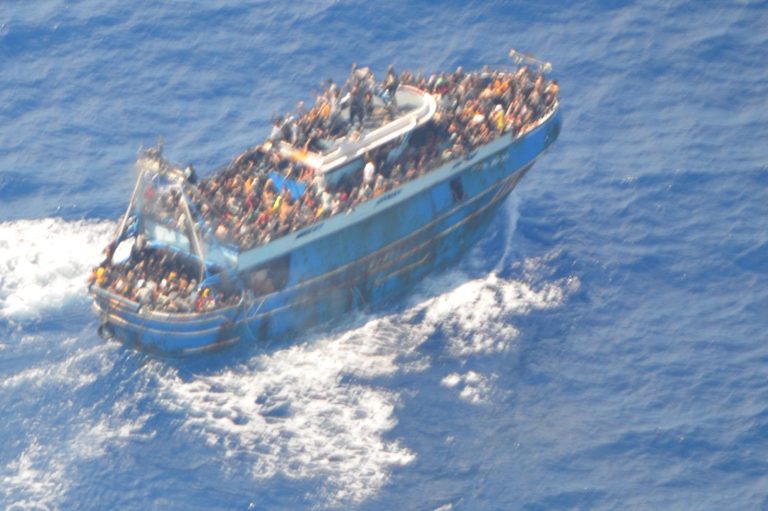On June 14, a fishing boat sank off the coast of southern Greece, claiming the lives of at least 78 people with hundreds more missing. Many of the passengers on board were migrants from several countries, mainly Pakistanis. The tragedy has become one of the country’s worst migrant-related disasters.
According to the Hellenic coast guard, the boat — which is suspected of having more than 750 people on board — sank about 80 kilometers southwest of Pylos on the morning of June 14. The initial death toll was counted at 79 people, but was lowered to 78 after initial reports.
The United Nations’ (UN) Human Rights Agency (UNHCR) and the International Organisation for Migration reported that around 500 people are still missing.
Reportedly, the trawler left Libya on June 9. Three days later, the boat’s engine ceased to function, and all attempts to repair it failed. The Greek news website kathimerini.gr published excerpts from the depositions of two survivors, who reported that 15 of the 700 passengers worked for human traffickers.
The coast guard claimed that they had been communicating with the boat, offering aid to the passengers. However, they supposedly refused the call nor did they call for help, forcing officials to hold back on rescue attempts. The Greek shipping ministry was repeatedly told that the boat was simply heading for Italy.
Success
You are now signed up for our newsletter
Success
Check your email to complete sign up
READ MORE:
- Xi’s Right Hand Man Meets With Germany’s Scholz In First Trip Outside China
- Tragic Train Collision Strikes Greece, Station Master Arrested and Transport Minister Resigns
- Chinese Ship Detained by Malaysia, Suspected of Salvaging World War II Shipwrecks
It was also reported that the passengers were not wearing life jackets. Greek and Italian authorities were alerted to the boat’s presence on June 13 by Frontex, the European Union’s (EU) border agency.
The BBC also wrote that a Maltese cargo ship supplied food and water for the passengers last Tuesday.
The boat began to rock around before it capsized and sank, leading to difficult rescue efforts that were hindered by strong winds, the BBC reported. Rescue officials said about 100 people were rescued from the disaster zone. Among them were 12 Pakistanis.
Operators of an emergency helpline for seabound migrants, Alarm Phone, complained that the coastguard was indeed “aware of the ship being in distress for hours before any help was sent.” Operators also claimed that authorities were already told by “different sources” of the boat’s plight, adding that the passengers may have been afraid of Greece’s “horrible and systematic pushback practices.”
“It’s really shocking to hear that Frontex flew over the boat and no-one intervened because the boat refused all offers of help… an overloaded boat is a boat in distress,” Jerome Tubiana of Medecins Sans Frontieres told French radio.
The survivors were taken to Kalamata, where many were treated for hypothermia or minor injuries. Several passengers were brought in for questioning over suspected human trafficking.
Following the disaster, Greece fell into mourning for three days, with Greek regional health director Yiannis Karvelis warning that the extra load of passengers “was much higher than the capacity that should be allowed for this boat.”
Pakistan, where many of the passengers originated, held a national mourning day on June 19, as Prime Minister Shehbaz Sharif ordered “a high-level committee” to run an investigation into the incident.


















